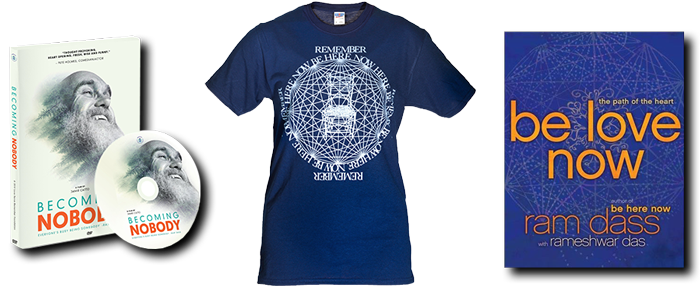If you tune in to the BBC or read newspapers from around the world, you will realize that we in the U.S. are seen as an economically exploitive and not very compassionate nation, and yet we are made up of people who are compassionate. It’s an interesting paradox. It’s like seeing a big bully beat up a little kid. You feel anger. You feel hurt and upset. You want to stop it. How much worse do you feel if you realize that you are, in fact, just like that big kid? Not only are you hurt by the unfairness of exploiting weakness, but you are also hurt by the fact that you are in some sense a supporter of the whole fight. This is the situation of being a citizen of a nation that is a territorial bully. It’s a terrible double whammy.
Now there is a pragmatic way of looking at this and then there is a clearly spiritual way of looking at it. Let’s look at the pragmatic way first. If you and I have a difference of opinion, and both of us feel righteous about our cause, we’re having a fight. If one of us wins, in the long run both of us lose. Because if there is a winner, there is a loser. And when there is a loser, there are karmic repercussions. You see, righteousness is a very delicate thing to work with, because it has anger. Righteousness is judging: it makes other people wrong. It’s all about power and who is more powerful than somebody else. So from a pragmatic point of view, you may win the battle but you may lose the war. When you say “I don’t care about the war, I just want to win the battle,” you have to live with the consequences.
Coming back to the question of feeling anger at somebody else’s bullying . . . do you recognize that the same qualities that led that person to act negatively are also in you? A Mafioso who is selling crack to kids goes home and holds his grandchild on his knee with tremendous love and tenderness, and he would protect his grandchild with everything he’s got. He’s built a structure in his mind to justify how he is living so he doesn’t feel like he is an evil person. In the same way, we build a structure in our minds so we don’t have to feel our unconscious side, yet we are creating karma every day with unconscious acts, like driving a big gas guzzling car or consuming goods that that are derived from oil reserves. We are using products that use up the earth’s resources and are polluting the planet, even if we think we are doing it for good reasons.
Now that we can see the image of earth as a global village—the images of the whole planet as seen from space—we can see that we were all living on the same habitat. I meet kids who have grown up with a picture of the Earth as this big ship traveling through space with everybody on it. They’ve grown up with the Internet, where they see something going on anywhere in the world at the moment it is happening. I’ve watched space shrink and time change. I’ve watched the whole nature of who we are all together morph; I’ve watched cultures blend with each other, which have made nations begin to be anachronistic. And I’ve watched the whole development of digital media and the web—a chain that ties us all together in even more intricate ways and that can ignite a shift in consciousness about who we are. The political and social implications are vast.
We are all a part of the web, so it’s a cheap hit to be angry at somebody else. It isn’t good enough. You are angry because you can’t accept that everything in that person is a part of you, too. And when you are angry at somebody, you push that person away. You make him or her an object. You polarize the whole situation and don’t give that person a chance to change.
When somebody is doing actions you don’t like, the spiritual solution is to do what you can to stop them, but you do it in such a way that you do not reject the person. You reject the action, but not the person. That is a big one. You reject the action, but not the person. For example, I have yet to figure out who George Bush was. I know by his actions that he was full of shoddy, manipulative deceit. I also know he is a fellow soul, just like I am. And I know that he can grow, just like I can grow. And I want to keep my mind and heart soft and open and receptive to allow him to grow, because it is for my own survival.
I can disagree with a political leader’s actions. I can legislate. I can do civil disobedience if I think what he supports is wrong. I can disagree with actions that are not compassionate. But I want to keep my heart open. If I don’t, I am part of the problem, not part of the solution. And that’s just not interesting enough. That’s what the inner work is—to become part of the solution.
So going around being angry at everything and everybody is a cheap pie. It really is. You don’t have to act out of anger in order to oppose something. You can act to oppose something because it creates suffering. You can become an instrument of that which relieves suffering, but you don’t have to get angry about it. Social action does not have to be pumped up by righteous indignation or anger. That’s working with the dark forces. That’s working with fear. You can work with love. You can oppose somebody out of love. You can do social action out of love. And that’s the way you win the whole war, not just the battle.
– Ram Dass








Excellent ideas that made me think/feel/from the heart. “You can work with love.” This is the key element the heart of compassion. It is the beginning and the end of the yinyang spin. When under karma-attack., stay grounded, stay centered in love. Always karma tries to spin the elements into smooth, this is what it is trying to do, to take the matter here, the material realm and spin it back to what it is, before the material manifest, the hole in the wall, the molecular decay of the spirit molecule. Karma, yin/yang wants to make whole the holes..or to make us cognizant of the hole is the whole just we are on the otherside until we are spun out and hung to dry on the hub of a boddhi tree., watching the wheels spin round and round. Love is what we are, and when we are not love, we are not being the heart of the spin and all spins in an unharmonious way. We need to keep the center of the spinner’s wheel always centered in love. No matter what happens then, we can overcome the odd waivers in the patterns that are not spun from center, those images, feelings, that is not grounded from the base, the center of it all..the heart of compassion.
Thank-you Ram Dass for being the centering of love example to me, and you inspiration is always infinite love~ <3
Thank-you Ram Dass for being the centering of love example. The fine examples written upon the walls of this reality is truly a great inspiration for me, always keeping me grounded to the true heart regarding the matter of our infinite love~ <3 Namaste <3
I think maybe Baba said “cheap high” rather than “cheap pie”!? It seems true that anger is often used as a cheap high.
I think you are correct that the spoken word was “high” not “pie”, but find it interesting that it sort of works either way.
This remonds me of when Krishna says ” all things are in me, but i am not in all things.” Love loves Love and remembers love through this, it does not leave its nature as Love to do this.
Came here to see what he said about this because I’ve been through it recently. Reading his words helps a lot. Thank you for keeping them out here for us.